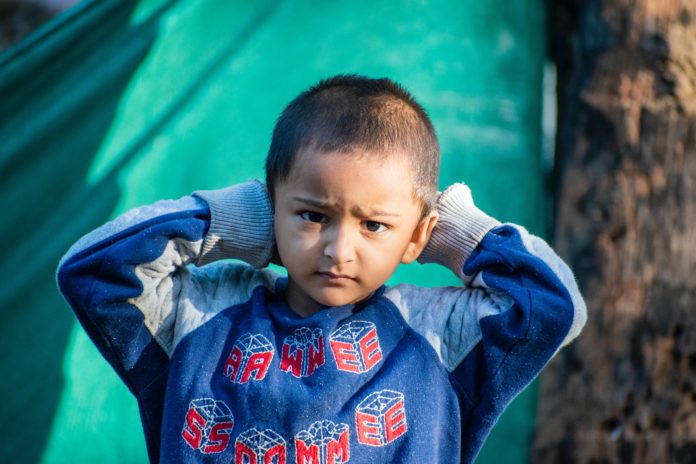South Africa is still picking up the pieces following the Covid-19 pandemic. This has been largely exacerbated by the rising fuel and food prices. Citizens are reportedly running out of money to buy food or ensure that their families are well nourished. Smile FM spoke with Food and Nutrition Justice Advocate, Chantell Witten about how hunger affects children. How hunger is a detriment to society.
READ MORE: Tobacco farming leads to increased food insecurity
Why are children going hungry in South Africa?
Factors such as high levels of unemployment, rising food prices and limited resources in a household all affect the nutrition of children. Witten says that children bear the brunt of insufficient food, and care and suffer the most from hunger and malnutrition, “not having enough good quality food also sends children into a state of hunger.”
What are the physical effects of hunger on children?
Weight loss, slow growth and development. Delayed cognitive performance. “Hungry children also get sick more often and more severe,” says Witten.
Can hunger impair brain function or development?
“Children who are hungry and malnourished have a physical growth impairment of the brain size – it is smaller,” Witten explains. She adds that the connections and functioning of the brain are slower due to the misfiring of the synapses. “If you think about this, the wiring of the brain is impaired and the function of the brain is slowed,” says Witten.

Because of this, are hungry children unable to learn or pick up skills?
Witten answers that, “while they can learn and pick up skills, they are delayed and slower. It is harder for them.” Some research suggests that hungry children have as much as 13 IQ points less than healthy children. Research also shows that hungry children experience almost a 6-month delay in development, compared to healthy children. “If a healthy baby learns to sit at 6 months…a malnourished child could be sitting only at 9 or 12 months.” Witten says if you take this into the school context, it explains high failure rates, “hungry brains just can’t cope.”
In a broader sense, are hungry children unable to change their fate?
According to Witten, hungry children have less opportunities to excel at school. They also have a higher chance of dropping out. “Because of this, they have a less likely chance of getting a good job that pays good wages,” explains Witten. Due to this vicious cycle, they will end up having fewer opportunities to earn, or earn very little.
What is the reality of South Africans having to make hard choices between, say, education or food, utilities or food?
“The majority of South Africa’s children live in poor conditions, come from households dependent on grants and are suffering from hunger and malnutrition,” says Witten. She says that the country’s children are not having the full benefit of good health and development. “They are already paying with their lives now with more sickness, less development and less opportunity to thrive. Children are losing the potential to grow, earn and live healthy lives. These same malnourished children are our future diabetics, hypertensives and cardiovascular patients,” says Witten.

In other parts of the continent or the world, families even ‘sell’ off their children to survive. Could you delve a little deeper into this idea, and does this happen in the country?
The selling of assets is a well-known coping strategy, that households of varying income resort to to survive. At the time of this interview, Witten says that she was not aware of any local data, but acknowledged public cases of child trafficking for income. “We have also seen a few cases in the media of children who were ‘sold off as child brides. This is for income and to lower the burden at the household level,” explains Witten.
READ MORE: What is Cholera? Signs, Symptoms and Treatment
Does hunger drive violence? Could this be a leading factor in why South Africans reply violently to certain conflicts?
“South Africa has a long history of violence and a long history of household food insecurity. There is very good evidence that points to the psychological stress of making ends meet or putting food on the table – and this leads to conflict and distress in homes. Yes, hungry people are angry people.” Witten says that higher-order thinking is not supported when a human being is in the primal state of finding food.
Is the growing number of hungry people in the country pushing us into a tenser situation that will erupt into chaos?
“The media sighted hunger and food as one of the reasons for the July unrest, for service delivery disruption and discontent in the country,” says Witten. “We have seen the Arab Spring fueled by high food prices, fuel prices and joblessness. South Africa has all the ingredients for an ‘Arab Spring’. Only time will tell. But tensions and discontent are rising”.
What can be done?
Witten says that this situation needs an entire society to respond to it. With a key focus on hunger and malnutrition. “The government needs to engage the Nutrition Council that was drafted in the National Food and Nutrition Security Policy of 2014,” Witten suggests that all sectors engage in the change. She further says that political powers need to address the plight of children, “It’s their constitutional right.”
This article was first published on 15 September 2022. It has been updated.


